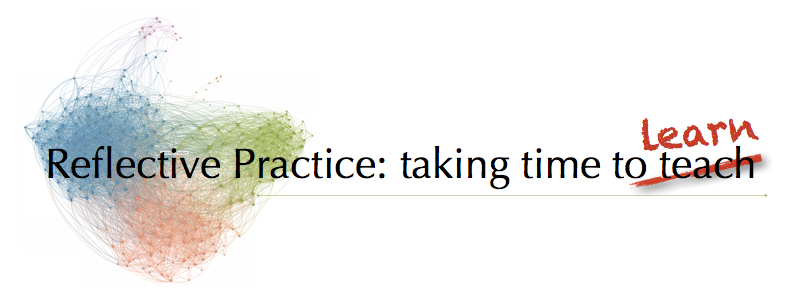"Everybody is a genius. But if you judge a fish by its ability to climb a tree, it will live its whole life believing that it is stupid." ~ Albert Einstein
I hated my Kindergarten teacher. She was a drill sergeant of a woman who expected compliance from her students, something of which I've never been particularly good. What made me such a terrible student at five years of age in the late 1960s? I would not nap, play house or sit still during the bible story. I insisted on playing with the blocks (Doesn't she know those are the toys for boys?) and I wanted to read the picture books (She's too young to read!). She believed my deviant behaviour was a sign of a lack of intelligence and wanted me to repeat Kindergarten. Thankfully, my mother had other ideas, fought the school on this decision (ultimately changing schools) and I was allowed to enter Grade 1.
I loved my Grade 1 teacher. I can still remember being upset when I would wake up for school only to discover it was Saturday and I couldn't see Miss Travers. In Grade 1 we were allowed to read the books (although I have to say Dick and Jane were not that exciting) and I remember the centres Miss Travers set up in the classroom where we could explore things she had brought in and make crafts. She was kind and cared about us; I was never afraid and did not run away once!
What a difference a year - and a teacher - can make to the life of a student.
This week in the What future for education? course we've been asked to reflect on the following:
- During your own education, how has your "intelligence" been assessed?
- How has this affected the educational opportunities you have been given?
- What judgments have people made about you that have been affected by an assessment of your "intelligence"?
- Do you consider yourself to be a "learner"? why?
My education was rather typical for a child growing up on the Canadian prairies in the late sixties and through the seventies. Every year we would sit through tedious multiple choice tests, that at the time, I never really gave much thought. As a child, I never made the connection between the tests and the idea that I was being judged on intelligence, I suppose I was blissfully unaware. Luckily, I was able to proceed from one year to the next until graduation and then on to university. Did I work hard - no. Was I inspired - no. I just did what I had to do to get through it - my education was something I had to endure until I was an adult and could take control over my own learning and pursuits.
I think I was an inquisitive learner before I started school. I then learned how to play the school game - be quiet and do what was asked. It took a number of years to see myself as a learner once again. I stumbled into the field of education and became a teacher. It was through my students that I slowly uncovered the joy of learning again. I cringe when I think back to some of the things we were expected to do when I first started teaching, weekly spelling tests, math drills, round-robin reading. But I always remembered how Mrs K and Miss Travers had made me feel and I was determined to be like the latter. I wanted to know my students, to know what they were thinking and feeling so that I might be able to help with their learning. And so I feel becoming a teacher enabled me to become a learner once again.
Why would I call myself a learner? I believe I've grown into a practice that aligns with the three principles of learning that Professor Gordon Stobart referred to in this week's lectures:
- the learner makes sense of the material (sees the big picture)
- the learner builds with what is already known
- learning is an active and social process
I am in a continuous loop of inquiry that is exploring how we can transform education to enable all children to uncover their passions, develop their abilities and come away knowing that we are all learners - that's just what humans are (seeing the big picture). My questions change and evolve as I learn more about one area and this of course begins a new cycle of inquiry (building on what I know). I wonder why things are the way they are, look at possibilities, try things with my students and colleagues, reflect upon these experiences and then make changes based on feedback and results (an active and social process).
When I reflect upon my own experiences as a student what strikes me is the power of an individual teacher to make a difference in the life of a child. What if each year of school had been like my first? When we think of intelligence as a 'thing' - a 'fixed mindset' - we are closing doors for our students. Perhaps without realising it, teachers who believe this make decisions in their classrooms that will have profound effects on their students. Stobart refers to these as multipliers, small events that over time have a big impact. Luckily for me, I had a few Miss Traverses along the way, who understood that intelligence is not fixed, but rather something that can be nurtured and grown.

No comments:
Post a Comment